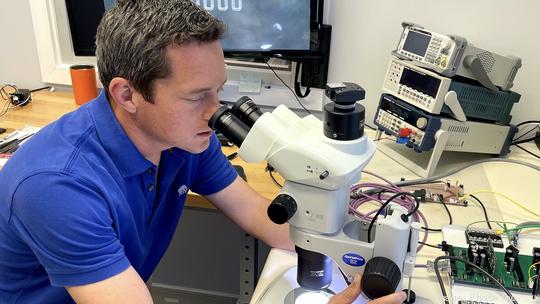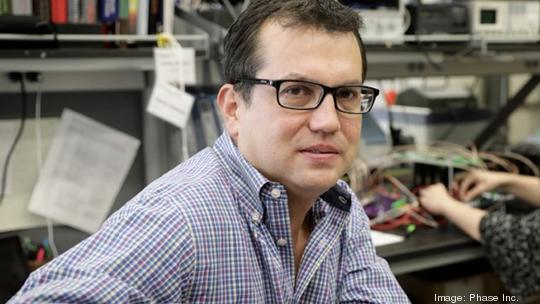
A local engineering and hardware startup has snagged a National Institutes of Health grant to pursue a 3D-printing project with Virginia Tech.
Phase Inc., based in Cornelius, is 3D-printing medical devices for microfluidics, a science based on systems that manipulate small amounts of fluid, with channels typically having the same diameter as a hair. Microfluidics allows researchers to analyze single cells and work with more precise information. It can also better emulate how human cells respond in certain interactions, often called organ-on-a-chip technology.
The devices are multilayered and come with electrodes or gels embedded into them. Some Covid-19 test strips are based off of microfluidics technology, said Rafael Davalos, a biomedical engineering professor at the Virginia Tech-Wake Forest University School of Biomedical Engineering and Sciences.

This latest grant comes through NIH's National Center for Advancing Translational Sciences and its Small Business Innovation Research program. Phase declined to share the grant amount.
Creating these devices, although time-consuming and expensive, can be more cost effective in the long term.
"Our bodies aren't 2D structures. ... Now, with the 3D capability, you can really copy what you see in the body," Davalos said. "I thought (Phase's) approach was really unique and could really expand the capabilities of what microfluidics can do."
The project is also about making microfluidics more accessible, Davalos noted.
Jeff Schultz, co-founder of Phase, said he met Davalos while working as a research faculty member at Virginia Tech. The two reconnected as Schultz was ramping up the business. Phase can manufacture the devices as Davalos tests them. Schultz said the printing material, called Polydimethylsiloxane, or PDMS for short, is not one that's widely available.
Printing the devices can take minutes to hours, depending on the size, Schultz said.
He estimates this first phase of the project will be completed by June. The second phase will be about scaling toward commercialization, either by selling the 3D printers to researchers or printing designs for clients and shipping them back. Schultz said the NIH program allows grant recipients to build a multiyear program with more potential funding.
Schultz said he thinks testing for viruses and diseases will increase, especially considering the pandemic. He believes that will drive higher-quality testing options through microfluidics.
"I think we're in an interesting position to be a platform where the testing can happen," Schultz said. "It's about trying to go from what was done in a test tube decades ago, now to building ... the digital lab environment where the microfluidics actually get to something that's much closer to the way cells might interact in your body or the way you would like to manipulate a cell at the cellular level."
Davalos and Schultz said there will be opportunities to collaborate with other researchers and universities.






